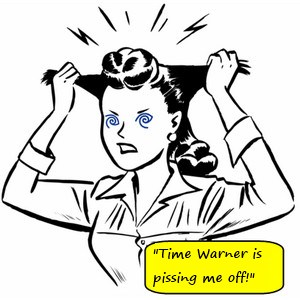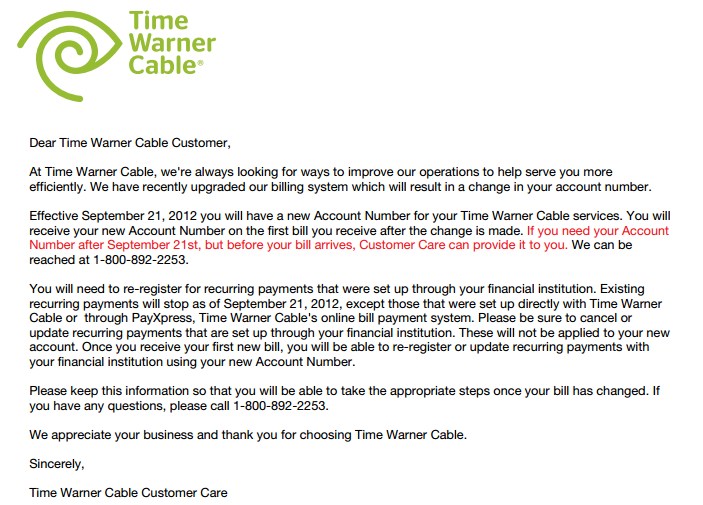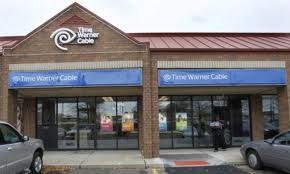
Shelly, a Time Warner Cable customer in New York City, ended up with a modem not on the company’s “approved for purchase” list, based on the recommendation of… Time Warner Cable.
Jon Weinberg has devoted more than six hours of his life trying to navigate around Time Warner Cable’s forthcoming $3.95 monthly modem rental fee, with no end in sight.
The 15-year Time Warner Cable customer is just about fed up and has started shopping around for another provider. The Staten Island resident tells Stop the Cap! asking for an additional $3.95 a month for a five year old cable modem is probably the last straw.
“Time Warner’s easy-to-miss postcard probably cost the company around 80 cents to print and mail, but their investment is going to cost them more than $1,500 a year they will shortly no longer be getting from me,” Weinberg said.
Weinberg, along with dozens of other Time Warner Cable customers in the Big Apple have been sharing their stories with Stop the Cap! since they learned the cable company was back for more of their hard-earned dough.
“This is simply ridiculous, because they have gotten enough money from me several times over to have paid for their modem,” Weinberg says. “I could understand if they wanted to charge new customers extra for a new modem ($2.50 a month), but demanding current customers pay $3.95 for equipment that is several years old is out of line.”
Many Time Warner Cable customers are choosing to purchase their own cable modems to avoid the fee, but the cable operator is making that as hard as possible. Customers are complaining about the very limited selection of “approved modems,” incredibly long hold times and delays activating new equipment, and impossibly long lines at the company’s store to return old equipment.
“I called seven times last week, always being left on hold for more than 30 minutes, trying to get my new Motorola 6141 modem activated,” Weinberg says. “When someone finally answers, it sounds like they are working out of a home and don’t understand what I am asking.”
Weinberg and several other readers, including your editor, also endured extended hold times and problems activating customer-owned modems. A supervisor earlier told Stop the Cap! a change to their billing system made it difficult to provision customer-owned modems last week. That problem appeared to be resolved by Saturday, but long hold times of 15-60 are not unusual after telling Time Warner’s automated attendant you need to activate new equipment.
“Time Warner uses the same relentless hold music with a not-so-subtle prompt to use their online chat function, which connects you to India, Guatemala, or maybe the Philippines, with all of the frustrating results you can expect,” Weinberg says. “I tried that route while waiting on hold for 40 minutes and they told me I should call in because they could not handle my request.”

Krakow
Gary Krakow, senior technology correspondent for TheStreet, suspects this cable modem fee could turn out to be a giant nightmare for customers. Some customers, including Krakow, are initially being told it will take several days to provision customer-owned equipment:
After 5 interactive minutes [with Time Warner’s automated call attendant] I was transferred to Lina (that’s what it sounded like when she spoke into her headset). She’s one of Time Warner’s national advisers. I told her exactly what I wanted to do. She listened attentively and took down a lot of information. She then gave me a “case number” and told me to hold on to speak with someone on the Time Warner Provisioning Team.
After a minute or so I was speaking with Monica, who called herself a Customer Service agent. She began asking me to repeat all my information again, but I insisted that she could find all of that by searching the case number from Lina. After a minute or two (we all had to wait for Lina to exit the file) Monica had all the info she needed and began typing in a new computer file.
In a minute or so she was done. She gave me a confirmation number (different from the case number) and told me that I’ll get a return call when they were ready. It turns out it will take as much as three days for a technician to make the change.
“But wait!” I exclaimed. “Your postcard had me go to your Web site, where I followed the instructions – installed the new modem – and called you to turn it on.”
Monica’s response: “Put back the old modem”.
Krakow is annoyed Time Warner gave New York-area customers just two weeks’ notice of the forthcoming fee and has so far dropped the ball helping out customers trying to avoid it.
“I can’t describe how pissed off I am with the cable company right now,” says Shelly, a Stop the Cap! reader from Manhattan. “I almost threw out their postcard because it looked like it was printed by someone on their personal ink jet printer. Time Warner has been totally unprofessional and unhelpful.”
 Shelly ended up getting conflicting information from Time Warner about what modem to buy. A call center representative recommended modems from the company’s rental list, not the approved for purchase list.
Shelly ended up getting conflicting information from Time Warner about what modem to buy. A call center representative recommended modems from the company’s rental list, not the approved for purchase list.
“I bought and received the exact same modem Time Warner gave me a year ago for my service and then they told me they cannot activate it because it is not on their list,” Shelly says. “It’s the exact same modem so it must work, but they absolutely refused to help me and now I am out a 15% restocking fee and return postage to send this thing back.”
A supervisor offered her a $5 courtesy credit for the misunderstanding. Shelly was not impressed.
 “It will cost me $15 in restock and shipping fees to deal with the problem they created with their money-grubbing.”
“It will cost me $15 in restock and shipping fees to deal with the problem they created with their money-grubbing.”
Verizon FiOS is not yet in her neighborhood, but Shelly says she will remember the modem fee when Verizon knocks on her door.
“This is an excellent example of how Time Warner treats customers,” she says. “They are in a real hurry to charge us more but can’t be bothered when customers want to avoid their crap.”
Weinberg finally managed to get his modem activated on Sunday, after another 45 minutes on hold. But his aggravation is not over.
“I decided to drop off my old equipment at the cable store and was told there would be at least a 90 minute wait with 20 people in line ahead of me, several with their own cable modems to return,” Weinberg reports. “They had two people working the desk while two others seemed to be doing paperwork. I left.”
Krakow ran into the same problem at the Time Warner Cable store on Manhattan’s Upper West Side.
“The line was out the door,” Krakow said. “I was told there was a one hour wait to ‘get a number and wait some more.'”
One strange side effect of the modem rental fee is that Time Warner Cable will allow you to keep your current cable (eMTA) modem if it is also used to support the company’s phone service. If you purchase your own cable modem, the company will deactivate the cable modem ports on the modem/eMTA they supplied and will not charge you a modem rental fee, even though you are still using their equipment.



 Subscribe
Subscribe












